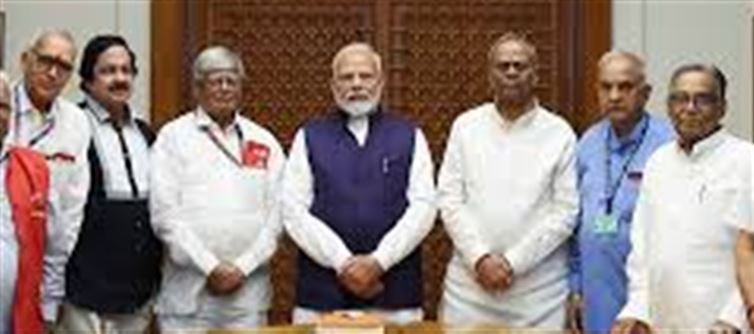
Government employees in india have a reason to cheer! The Unified Pension Scheme (UPS) has introduced a major reform: employees will now be eligible for full pension after just 20 years of service. This move brings financial security and is being hailed as a progressive step toward employee welfare.
1. What Is the Unified Pension Scheme?
The Unified Pension Scheme is a retirement benefits program for central government employees, designed to provide a steady pension after retirement. Key highlights include:
- Covers all central government employees joining after the scheme’s implementation.
- Combines elements of previous pension schemes into a single, streamlined plan.
- Ensures financial stability during post-retirement years.
2. Previous Rule vs. New Rule
Earlier:
- Government employees needed 33 years of service to get full pension benefits.
- Employees with shorter tenures were eligible for reduced pension, discouraging mid-career transfers.
Now:
- Full pension available after 20 years of service, making it more accessible and rewarding.
- Every year of service beyond 20 contributes to a higher pension, ensuring long-term benefits.
3. Who Will Benefit the Most?
The reform is especially beneficial for:
- Young professionals in government service who may switch roles or departments early in their careers.
- Employees in contractual or project-based government jobs.
- Women and older employees who may prefer early retirement without compromising pension benefits.
This ensures broader inclusion and better retirement planning for government staff.
4. How Is the Pension Calculated?
Under the Unified Pension Scheme:
- Pension is calculated based on average last drawn salary and years of service.
- After 20 years, employees get full pension, with incremental benefits for additional service.
- The scheme also offers family pension for eligible dependents after the employee’s demise.
This formula makes it transparent and predictable, helping employees plan financially.
5. Financial Security and Peace of Mind
The UPS reform addresses a key concern for government employees: financial security after retirement.
- Employees no longer need to serve over three decades to enjoy full benefits.
- Provides peace of mind for career decisions, transfers, and mid-career shifts.
- Encourages long-term commitment to government service by rewarding tenure fairly.
6. Steps for Employees
Government employees should:
Check service records to ensure accurate tenure calculation.
Verify salary history to understand expected pension.
Consult HR or pension offices to update records for smooth processing.
Plan additional savings or investments for enhanced post-retirement security.
7. Final Thoughts
The Unified Pension Scheme reform is a game-changer for government employees, offering full pension after 20 years of service. This move not only boosts morale but also ensures that employees can retire comfortably without worrying about financial stability.
For the millions serving the country, this UPS update is more than a policy—it’s a promise of security, respect, and recognition for their dedicated service.
Disclaimer:
The views and opinions expressed in this article are those of the author and do not necessarily reflect the official policy or position of any agency, organization, employer, or company. All information provided is for general informational purposes only. While every effort has been made to ensure accuracy, we make no representations or warranties of any kind, express or implied, about the completeness, reliability, or suitability of the information contained herein. Readers are advised to verify facts and seek professional advice where necessary. Any reliance placed on such information is strictly at the reader’s own risk..jpg)




 click and follow Indiaherald WhatsApp channel
click and follow Indiaherald WhatsApp channel